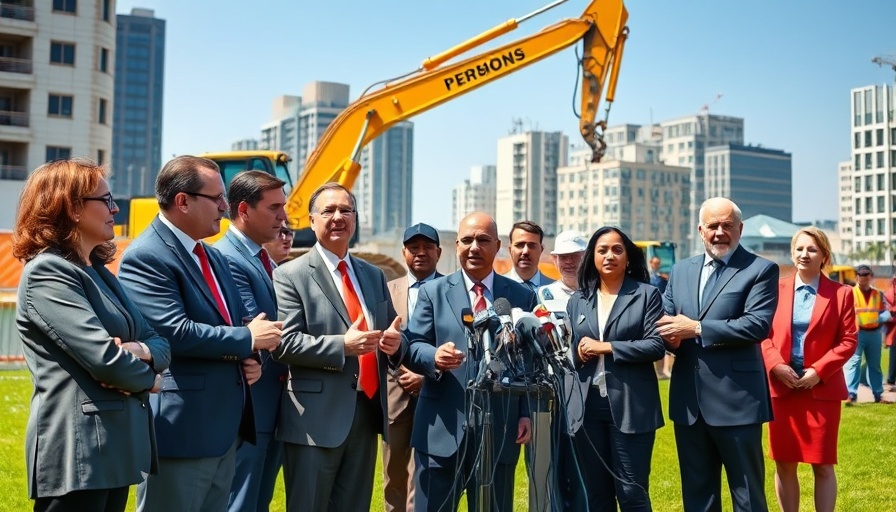
Atlantic City Takes Bold Steps for Storm Protection
A new chapter in Atlantic City's efforts against climate change has begun with the launch of an $8.5 million bulkhead replacement project in the Chelsea neighborhood. This initiative aims to safeguard the community from flooding and related storm damage, addressing a critical need for enhanced coastal defenses.
The construction project spans from Albany Avenue to Morris Avenue along the back bay, featuring not just bulkhead replacements, but also improvements to stormwater outfalls, sidewalk restorations, and even tree plantings. Funded by a grant from the New Jersey Department of Community Affairs, this project epitomizes a broader commitment to resilience as articulated by Mayor Marty Small Sr.
A Vision for a Resilient Future
Mayor Small stressed the importance of proactive measures for the safety of local residents and businesses. “Through various projects like this, we are not only protecting our residents and businesses, but we are also investing in the future of our community,” he stated. This bulkhead initiative is just one of many projects aimed at ensuring neighborhoods remain safe and resilient against the unexpected challenges posed by severe weather.
Looking ahead, the city is also progressing with the $16 million Atlantis Avenue Pump Station project, designed to significantly improve stormwater management for the Midtown and Inlet areas. Plans for additional projects, including upgrades to the Ducktown and Fisherman’s Park Bulkheads, are also underway, all made possible through strategic partnerships and grants from organizations like the United States Economic Development Agency.
Lessons from the Past and a Roadmap for Resilience
The groundwork for these initiatives was laid following the devastation of Superstorm Sandy. City officials and grant consultants emphasize the long-term commitment needed to safeguard vulnerable neighborhoods. City of Atlantic City grant consultant Jim Rutala mentions the importance of a comprehensive plan developed after past storms: “Some of this work started after Superstorm Sandy, but the bulk of the work came after Mayor Small took office,” he explained. This forward-thinking mindset aims at not only addressing today’s challenges but preparing for future storms.
As we venture into a new era of climate awareness, Atlantic City's continued investment in sustainable practices serves as a beacon for other coastal communities grappling with similar issues. The integration of public input, alongside effective grant management, has set a precedence for communal resilience. The results will not only affect the landscape but also the spirit and safety of the local neighborhoods.
In a world where weather-related disruptions are becoming increasingly common, Atlantic City's strides towards improved storm readiness and community resilience provide hope and a valuable blueprint for similar initiatives nationwide.
 Add Row
Add Row  Add
Add 




Write A Comment